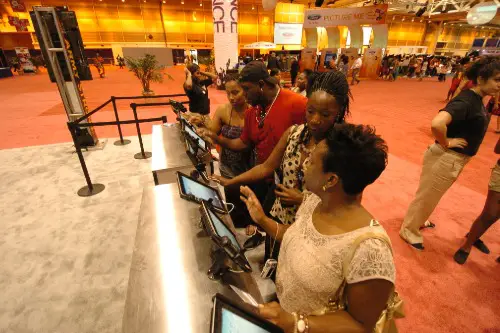In a world where Black communities have faced historical and systemic challenges, finding space for joy can feel radical. Black joy isn’t just a reaction to adversity—it’s a celebration of resilience, culture, and the undying spirit of communities. It’s time we rethink the narrative and understand why embracing happiness is not just uplifting, but a powerful act of resistance. This is a story of reclaiming joy and how it is shaping the future of Black identity in the U.S.
Redefining Resilience Through Happiness

When we talk about resilience in the Black community, we often emphasize strength in the face of struggle. The images of marching in protest, pushing for policy change, and rallying in the face of injustice have become synonymous with Black endurance. But in that same breath, we overlook the moments of laughter, love, and celebration that have always coexisted with hardship. These moments are more than mere diversions; they are a testament to the true fortitude of Black people. They prove that joy can thrive, even when surrounded by the weight of centuries of discrimination and marginalization.
A prime example of this shift can be seen in the rise of social media movements that amplify the joy of Black culture. Instagram and TikTok accounts dedicated to Black happiness, from viral dance challenges to shared recipes for soul food, celebrate the unadulterated, infectious energy of Black life. The trend isn’t just entertaining; it’s revolutionary. It shows the world that joy is part of the full Black experience, not a temporary escape but an enduring part of who we are.
When Black artists create music or art that makes people move, smile, or reflect, they’re tapping into that rich heritage of celebration. Think of Lizzo, who combines self-love with body positivity and fun. Or the rise of Afrobeats and its celebration of freedom and dancing till dawn. These moments don’t just bring joy—they challenge the prevailing idea that Black communities are defined only by their suffering.
Why Joy Is Revolutionary
At first glance, embracing happiness may seem small, even selfish, in the face of the systemic challenges that persist in American society. But that’s precisely what makes it revolutionary. Joy is a quiet rebellion against the notion that Black people are always supposed to be fighting, protesting, or mourning. It asserts that we, too, deserve to take up space in the world not just as activists or as symbols of struggle, but as people who simply want to be happy.
Dr. Joy DeGruy, a noted researcher and author, has often spoken about “post-traumatic slave syndrome,” describing the intergenerational trauma passed down through slavery and subsequent discrimination. To embrace joy, in this context, is a way to disrupt that cycle—it’s a refusal to be defined only by what was lost or stolen. It’s a conscious decision to find light in places where darkness has lingered for far too long.
Think of family barbecues on warm summer days, where laughter fills the air as elders teach the youth how to play spades, or Sunday mornings with the scent of fried chicken and collard greens wafting through the house. These moments are radical in their simplicity. In a world that has often denied Black people the space to be joyful, claiming that space feels like an act of defiance.
The Growing Power of Community and Culture

The embrace of joy doesn’t happen in a vacuum. It’s the result of collective healing and community strength. Social justice movements and political activism may get the spotlight, but it’s community celebrations, like the ones seen in Black festivals and neighborhood block parties, that serve as the glue holding it all together. These are moments where Black people come together, dance, share food, tell stories, and revel in each other’s company. In these moments, they remind each other that even in hard times, happiness isn’t just possible—it’s necessary.
More than ever, these expressions of Black joy are getting the recognition they deserve. Organizations dedicated to promoting arts and culture, like the National Black Arts Festival in Atlanta or the Essence Festival in New Orleans, highlight joy as a major part of Black identity. It’s about more than entertainment; it’s about preserving and uplifting a way of life that has withstood oppression and flourished despite it. From jazz and gospel to hip-hop and R&B, these forms of artistic expression have always found their roots in joy and resistance. They’ve paved the way for a cultural revolution that says: We don’t just survive—we thrive.
It’s not only cultural movements that are embracing this; it’s individuals too. More and more, we’re seeing Black communities prioritize mental health, self-care, and self-expression. Artists and influencers are candid about taking breaks when necessary, emphasizing that taking care of oneself is an act of self-love and community empowerment. This growing acceptance of self-care is revolutionary because it flips the narrative: Black joy is not just personal; it’s a social movement.
The Call to Action: Finding Your Own Joy
As we move forward, the question is not just about what joy looks like for Black people, but how we, as a society, can support it. For allies, it means recognizing that the story of Black America is multifaceted. It’s not only about the trauma of the past but also about the joy and brilliance of the present and future. It’s about celebrating Black stories that don’t always follow the script of pain and survival.
For the Black community itself, the encouragement to choose joy is essential. In a world that may sometimes insist otherwise, claiming happiness is an act of defiance. It’s a reminder that Black people deserve not just to be seen in struggle, but also in celebration. Whether that means dancing to the latest song, sharing a joke with friends, or simply taking a moment to feel the warmth of the sun, joy is a crucial part of the journey.
So, let’s continue to celebrate Black joy—because it’s not just a state of mind; it’s a revolution. It’s a reminder that in the pursuit of justice, happiness is a weapon, and living fully is the most radical act of all.
